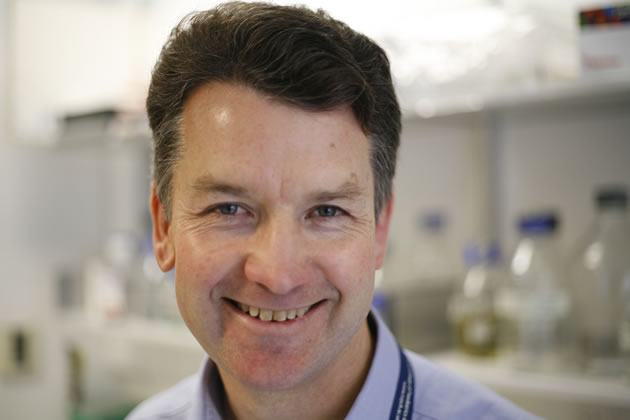World’s First Alternating Vaccine Trial at St. George’s
Will investigate if getting doses from different manufacturers are effective

Professor Paul Heath, Director of the Vaccine Institute at St George’s, University of London
The world’s first coronavirus vaccine study that will use different approved vaccines for the two doses, and different intervals of time between them, begins at St George’s in Tooting this Thursday (4 February).
The study is supported by the National Institute for Health Research (NIHR) and is classified as an Urgent Public Health study, backed by £7 million of government funding from the Vaccines Taskforce.
Over 800 volunteers, aged 50 years old and above, are expected to take part in the study across eight sites across England.
The clinical study will monitor the impact of the different dosing regimens on patients’ immune responses, and whether this can be a viable route to increase the flexibility of the UK’s vaccination programme.
However the current vaccine programme of two doses of the same vaccine over twelve weeks remains unchanged
Anyone who has received either the Pfizer or AstraZeneca vaccination as part of the UK-wide delivery plan will not be affected by this study.
Professor Paul Heath, Director of the St George’s University Vaccine Institute, and Principal Investigator for the study at St George’s Hospital, said, “The results of this research could allow us to save even more lives by enabling people to be vaccinated more quickly and efficiently against this terrible disease. We encourage as many people as possible to sign up for this study.â€
Patients are to be recruited over the course of February via the NHS Covid-19 Vaccine Research Registry, with vaccinations expected to start towards the middle of the month and initial results to be made available over the summer period.
Deputy Chief Medical Officer and Senior Responsible Officer for the study Professor Jonathan Van-Tam added, “Given the inevitable challenges of immunising large numbers of the population against COVID-19 and potential global supply constraints, there are definitely advantages to having data that could support a more flexible immunisation programme, if ever needed and approved by the medicines regulator.
“It is also even possible that by combining vaccines, the immune response could be enhanced giving even higher antibody levels that last longer; unless this is evaluated in a clinical trial we just won’t know.
“This study will be a promising opportunity to gain greater insight into how we can use the vaccines to stay on top of this nasty disease.â€
Sian Bayley - Local Democracy Reporter
February 4, 2021